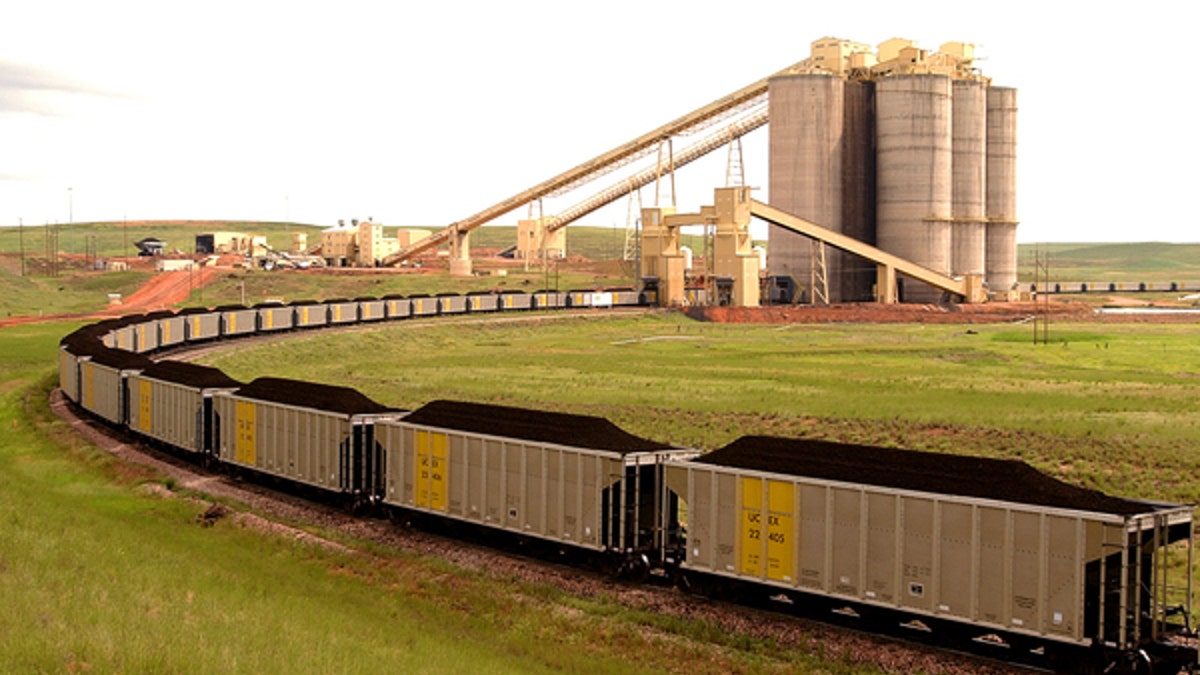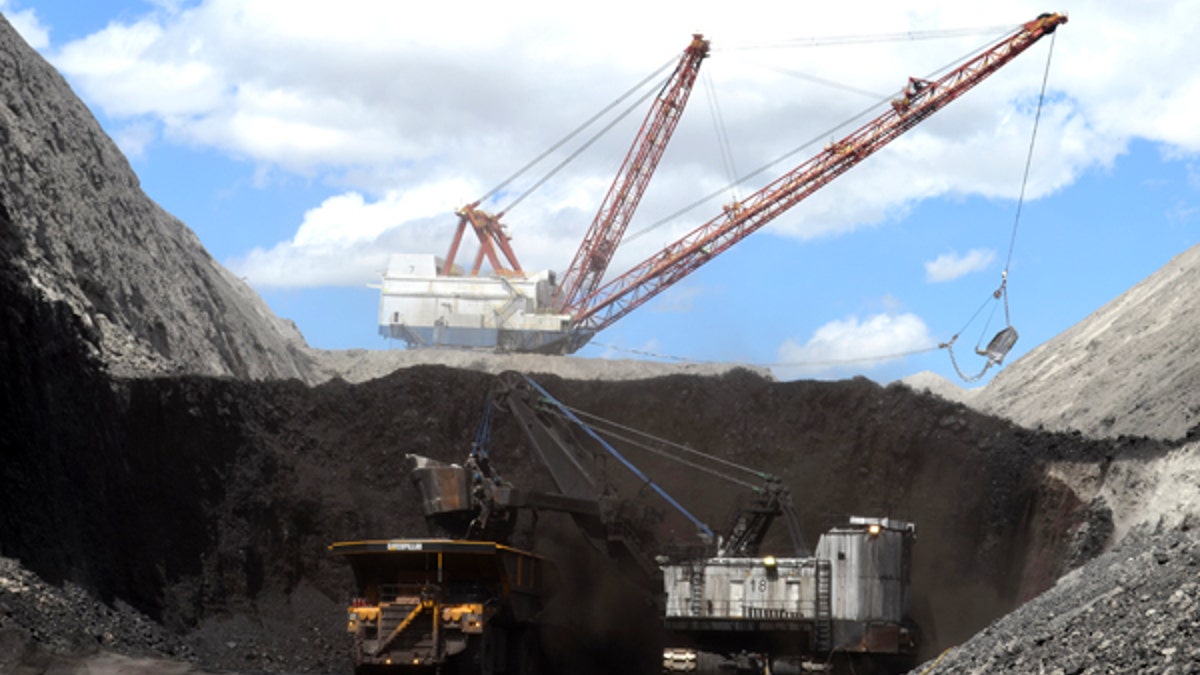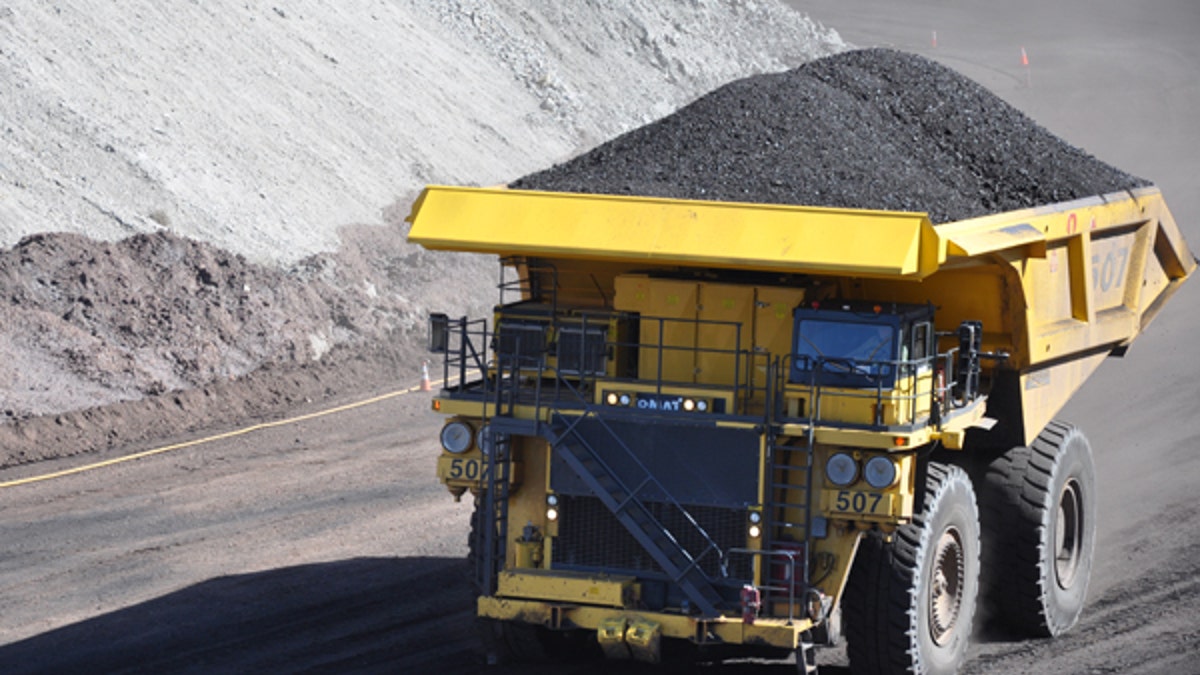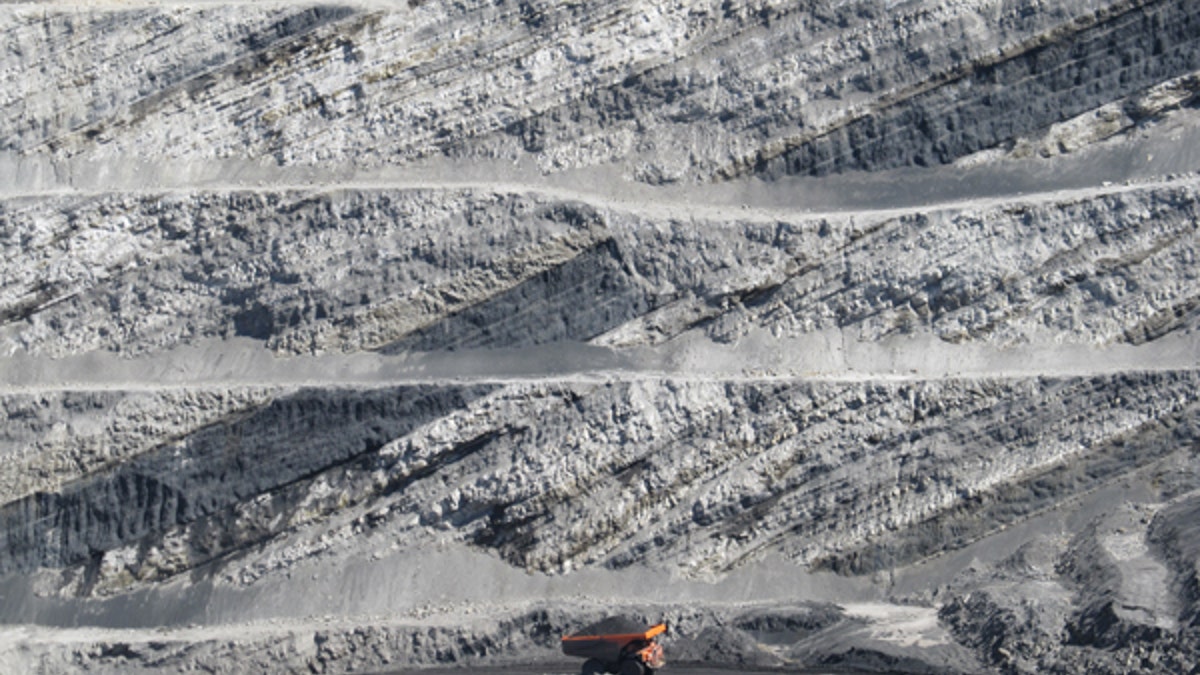
A moratorium on new mining contracts on federal lands could devastate places like the Powder River Basin region of Wyoming. (Wyoming Mining Association)
The Obama administration’s announcement of a temporary freeze on new coal mining on federal land blew through the Powder River Basin like Wyoming's bitter winter wind.
The Friday announcement was hardly unexpected, given the administration's so called "war on coal." But with beleaguered big coal poised to dig some of the biggest known deposits in America's top-producing state, hopes ran high - until they were dashed.
“The administration has chosen to pander to special interest groups and do their bidding,” Colin Marshall, president and CEO of Cloud Peak Energy, told FoxNews.com after the announcement.
“There’s no sugar coating it. This is just another attempt to put another nail in the coffin of the industry.”
The move was seen as just the latest in a line of anti-coal initiatives that have contributed to the crippling of the industry, which has also been hurt by falling oil and natural gas prices.

Coal companies are already hurting from previous federal mandates as well as falling oil and gas prices. (Wyoming Mining Association)
Nowhere will the moratorium have a bigger effect than in the Powder River Basin. Mining companies have long paid huge fees for the right to operate on federal lands, and Cloud Peak and other companies were relishing the opportunity to work two mine sites in the region. The Powder River Basin is a geological treasure trove, with a trillion tons of coal running through the earth in 100-foot high ribbons.
Federal authorities, including officials from the Environmental Protection Agency, had been considering whether to allow new leases for more than a year, and last summer held "listening sessions" in the area. Now, Marshall wonders if the feds bothered to hear about a ban's impact on workers, families and the local and state economies.
“We are disappointed that after a robust set of ‘listening sessions’ on the coal leasing program last summer in which thousands of people across the West, from working class Americans to governors, very clearly explained how important the coal leasing program is to their well-being,” Marshall said.

Big coal companies have seen their stock prices tumble as much as 95 percent in recent years, and layoffs have devastated communities. (Wyoming Mining Association)
Roughly 40 percent of the coal produced in the United States comes from federal lands. The vast majority of that mining on government land takes place in Wyoming, Montana, Colorado, Utah and New Mexico. In total, Wyoming produces more than three times as much as the next-closest coal producing state, West Virginia.
It's unclear what impact the moratorium will have on many coal companies given the declining domestic demand, coupled with the closure of numerous coal-fired power plants around the country. Mining companies have already stockpiled billions of tons of coal on existing leases—including Cloud Peak Energy.
“We urge Western lawmakers at the state and Congressional level to ensure a timely and legitimate review process by the Department of the Interior,” Marshall said. “[But] We do not believe this announcement will have any immediate impact on our operations, and we have strong reserves, including the Youngs Creek and Big Metal projects which are not impacted by today’s announcement, to continue serving our customers.”
In a conference call on Friday, Department of the Interior Secretary Sally Jewell said that the recent decision “is not a pause on coal production” but rather a means for the government to have more time to study the benefits of coal and its impact on the environment. Jewell also said that the pause on new leases should not affect the country’s ability to meet production goals.
Some in the industry near the Powder River Basin say otherwise.

A mine in the Powder River Basin (Wyoming Mining Association)
“This is not about finding a solution that’s best for everybody,” Travis Deti, assistant director for the Wyoming Mining Association, told FoxNews.com. "That’s just lip service. This is just another attempt to keep coal in the ground.”
It was during the public hearings last year that the administration also set out to get feedback on the adequacy of the fees charged companies for coal mined on federal lands. The government collects a 12.5-percent royalty on the sale price of strip-mined coal. The rate was established in 1976. The money is then split between the federal government and the state where the coal was mined. Coal companies also pay a $3 fee annually for each acre of land leased.
Government auditors have in the past questioned whether the rate provided an appropriate return to taxpayers. But coal companies say their profit margins are slim compared to what they fork over to the government.
“Cloud Peak Energy paid $354 million in taxes and royalties to federal, state and local governments in 2014," Marshall said. "For the same year, we paid an additional $69 million for leases for future production. For the same year, our profit was $79 million.”
Deti said the government is not really looking out for taxpayers so much as it is dealing a death blow to an industry that means everything in places like the Powder River Basin.
“There’s no sugar coating it," Deti said. "This is just another attempt to put another nail in the coffin of the industry.”
The Associated Press contributed to this story.









































